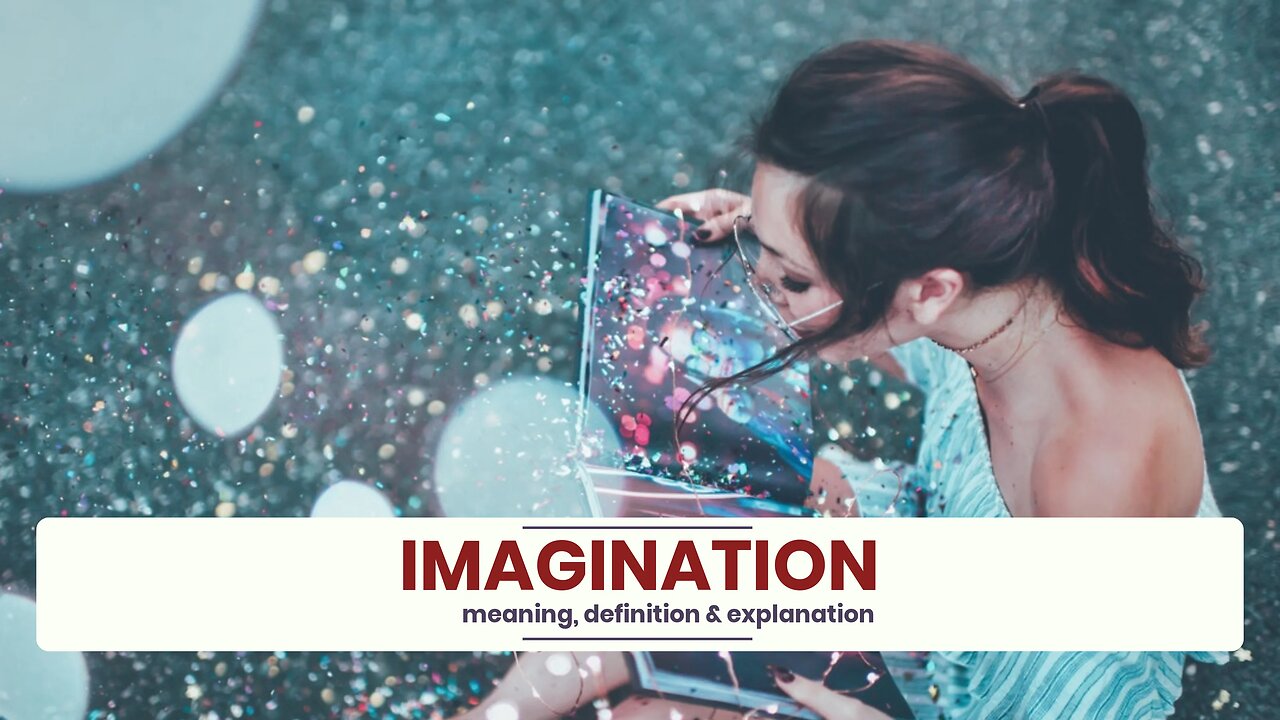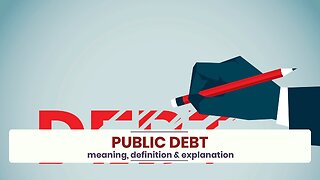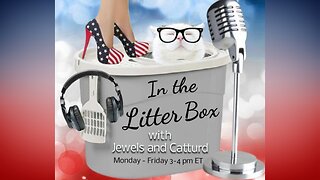Premium Only Content

What is IMAGINATION?
✪✪✪✪✪
http://www.theaudiopedia.com
✪✪✪✪✪
What does IMAGINATION mean? IMAGINATION meaning - IMAGINATION definition - IMAGINATION explanation. What is the meaning of IMAGINATION? What is the definition of IMAGINATION? What does IMAGINATION stand for? What is IMAGINATION meaning? What is IMAGINATION definition?
Imagination, also called the faculty of imagining, is the creative ability to form images, ideas, and sensations in the mind without direct input from the senses, such as seeing or hearing. Imagination helps make knowledge applicable in solving problems and is fundamental to integrating experience and the learning process. A basic training for imagination is listening to storytelling (narrative), in which the exactness of the chosen words is the fundamental factor to "evoke worlds".
It is accepted as the innate ability and process of inventing partial or complete personal realms within the mind from elements derived from sense perceptions of the shared world. The term is technically used in psychology for the process of reviving in the mind, percepts of objects formerly given in sense perception. Since this use of the term conflicts with that of ordinary language, some psychologists have preferred to describe this process as "imaging" or "imagery" or to speak of it as "reproductive" as opposed to "productive" or "constructive" imagination. Imagined images are seen with the "mind's eye".
Imagination can also be expressed through stories such as fairy tales or fantasies. Children often use such narratives and pretend play in order to exercise their imaginations. When children develop fantasy they play at two levels: first, they use role playing to act out what they have developed with their imagination, and at the second level they play again with their make-believe situation by acting as if what they have developed is an actual reality.
Psychologists have studied imaginative thought, not only in its exotic form of creativity and artistic expression but also in its mundane form of everyday imagination. Ruth M.J. Byrne has proposed that everyday imaginative thoughts about counterfactual alternatives to reality may be based on the same cognitive processes on which rational thoughts are also based. Children can engage in the creation of imaginative alternatives to reality from their very early years. Cultural psychology is currently elaborating a view of imagination as a higher mental function involved in a number of everyday activities, both at the individual and collective level that enables people to manipulate complex meanings of both linguistic and iconic forms in the process of experiencing.
-
 1:41
1:41
The Audiopedia
7 months agoWhat is PUBLIC DEBT?
53 -
 2:09:53
2:09:53
Benny Johnson
4 hours ago🚨President Trump LIVE Right Now Making MASSIVE Announcement At White House News Conference
168K156 -
 2:04:10
2:04:10
Revenge of the Cis
4 hours agoEpisode 1433: Retribution
61.2K6 -
 1:42:50
1:42:50
The Criminal Connection Podcast
8 hours agoEddie Hearn talks JOSHUA vs FURY, Working With Frank Warren & The Truth About Turki Alalshikh!
4.59K1 -
 1:00:25
1:00:25
In The Litter Box w/ Jewels & Catturd
1 day agoGolden Age | In the Litter Box w/ Jewels & Catturd – Ep. 724 – 1/21/2025
90.2K50 -
 57:42
57:42
The Dan Bongino Show
11 hours agoHE'S BACK! (Ep. 2405) - 01/21/2025
1.21M1.83K -
 46:19
46:19
Candace Show Podcast
5 hours agoUH-OH! Elon’s Viral Salute Steals The Inauguration Show | Candace Ep 136
125K272 -
 8:05:01
8:05:01
hambinooo
9 hours agoNO COMMIE TUESDAY
76.5K3 -
 2:08:37
2:08:37
The Quartering
7 hours agoTrump Ends Online Censorship, Foreign Aid, Frees J6 Hostages & Much More In Day 1
117K44 -
 1:33:37
1:33:37
Russell Brand
8 hours agoBudget Cuts, Fires, and the Failures of Leadership – SF523
282K127